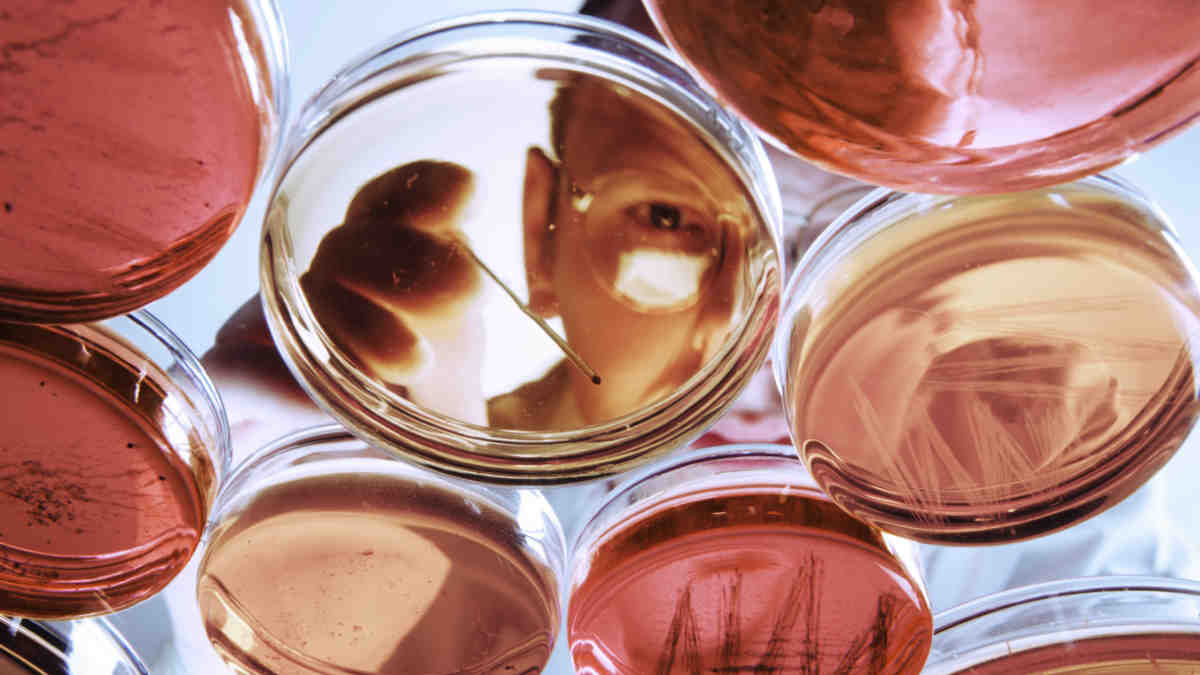As AI rewires microbiology, Clever Culture’s lab tech is catching Big Pharma’s eye
AI is reshaping labs and Clever Culture’s tech is gaining Big Pharma attention as diagnostics and cleanrooms go digital.

AI is reshaping microbiology in the labs
Big Pharma taps Clever Culture's APAS system
Here are ASX biotechs with global health deals
Step into a modern microbiology lab today and you might notice something’s different.
The culture plates are still there, the samples still getting prepped, but there’s less microscope squinting and a lot more clicking.
That’s because bugs haven’t changed, but the way we spot them has.
Artificial intelligence has quietly become the lab's most tireless worker. AI systems are now scanning culture plates, recognising bacterial growth patterns, and flagging potential pathogens in real time.
Where a human might need minutes, or hours, AI can get you results in seconds.
The secret to this is image recognition. These new systems are trained to detect tiny details that the human eye might miss: the shape of a bacterial colony, its colour, how it spreads across a plate.
Labs are now using these tools to instantly sort through hundreds of samples and tell you what’s what.
Now, pair that with the bigger mission: identifying infections faster, especially the nasty ones that are resistant to antibiotics.
Globally, this shift couldn’t come at a better time. There’s a shortage of skilled lab staff, and public health threats aren’t slowing down.
APAS upgrades the lab
One standout example of this new wave of lab automation is the APAS Independence, a smart imaging platform built by ASX-listed Clever Culture Systems (ASX:CC5).
Already active in hospitals and diagnostics labs across Australia, the US and Europe, the APAS system automates the most time-consuming part of microbiology: reading culture plates after incubation.
Instead of a scientist peering at plates one by one, APAS takes high-resolution images, uses trained AI to assess bacterial growth, and feeds the results straight into the lab’s system.
“What our product does is we automate that reading part of the workflow,” Clever Culture’s CEO Brett Barnes told Stockhead’s Nadine McGrath in a recent podcast.
“Rather than manually holding the plates and reviewing them and entering information in, you just load the instrument up with all of the plates. You start a session, and you walk away.”
APAS can flag patterns of growth that suggest a pathogen or resistant bug. And it’s fast. We’re talking up to 200 plates an hour, which is roughly three times the rate of manual reading.
By filtering out the negatives automatically, APAS lets the human experts spend more time on the outliers, where their skill and judgement are actually needed.
And what’s also clever about APAS is how it fits into a lab’s rhythm without overhauling the whole joint. No warehouse-sized robot arms. It’s compact, modular, and blends right in.
Why Big Pharma’s eyeing APAS
Big Pharma names like AstraZeneca and Bristol Myers Squibb are showing strong interest in this technology, and here’s why.
When the giants manufacture biologics – things like vaccines, eye drops, even dialysis treatments – contamination isn’t just inconvenient, it’s catastrophic.
These aren’t pills you pop with lunch. They’re going straight into the bloodstream.
So they must be made in ultra-controlled clean rooms, and environmental monitoring (checking those rooms for bacteria or mould) is crucial.
“We're talking about something that needs to be absolutely clean and sterile and free from any kind of contamination,” said Barnes.
Trouble is, most of that monitoring still relies on humans squinting at culture plates.
That’s where APAS fits in.
“It's kind of crazy, because over 99% of those plates have no growth.”
And yet, because of how critical the process is, many labs have two scientists verify every single plate. But with APAS, suddenly that laborious process becomes a precise, trackable, digital workflow.
“It sounds really easy, but we've spent (the) best part of 50 plus million dollars developing the technology.”
But APAS’ real value lies in its ability to standardise quality across massive manufacturing networks. That’s exactly why AstraZeneca didn’t just trial it, they’re now rolling out nine systems across their global sites.
“They've made a decision to standardise APAS for all, at least their largest manufacturing sites globally,” Barnes says. “Once it's in, it's very sticky.”
Same goes for Bristol Myers Squibb, which just placed a second order.
Bristol has been trialling APAS since July last year at its US Microbiology Centre of Excellence, and clearly, it likes what it sees.
The first unit was for evaluation, but now it’s ordered another one for live use at a second site.
It's being used to scan 90mm settle plates as part of environmental monitoring, basically checking that drug-making spaces stay sterile.
Next, Bristol will be testing APAS on the 55mm contact plates. If that goes well, it could open the door to rolling it out across more of its global sites.
“Our strategy has been to target global pharmaceutical manufacturers that operate multiple sites globally, and represent multi-instrument sales opportunities,” said Barnes.
Other ASX biotechs striking global health deals
While Clever Culture Systems’ APAS is gaining traction in pharma cleanrooms, several other ASX-listed biotech and medtech companies are also forging impactful partnerships with global pharmaceutical giants:
Dimerix (ASX:DXB): Secured an exclusive US licensing agreement with Nasdaq-listed Amicus Therapeutics for its Phase 3 kidney disease drug, DMX-200, targeting Focal Segmental Glomerulosclerosis (FSGS). The deal includes an upfront payment of $30 million and potential milestone payments up to $560 million.
Neuren Pharmaceuticals (ASX:NEU): Granted Nasdaq-listed Acadia Pharmaceuticals exclusive worldwide rights to develop and commercialise trofinetide, marketed as DAYBUE, for Rett syndrome. Acadia holds a global license for this treatment.
Telix Pharmaceuticals (ASX:TLX): Partnered with NYSE-listed Cardinal Health for the US distribution of its prostate cancer imaging agent, Illuccix. Additionally, Telix has a collaborative development and reseller agreement with GE Healthcare to supply its investigational PET imaging agents.
Clarity Pharmaceuticals (ASX:CU6): Entered into a commercial-scale supply agreement with US private biotech Nusano, Inc. for the production of copper-64 (Cu-64), a critical isotope for its radiopharmaceutical products.
Botanix Pharmaceuticals (ASX:BOT): Received FDA approval for Sofdra (sofpironium bromide) gel for primary axillary hyperhidrosis. The product was originally developed by Tokyo-listed Kaken, which markets it in Japan under the name Ecclock.
EMvision Medical Devices (ASX:EMV): Secured a strategic investment from NYSE-listed Keysight Technologies, a global leader in test and measurement solutions. This partnership provides EMVision with a fully funded path to market for its emu device, facilitating accelerated clinical trials and regulatory approvals in the US.
Imagion Biosystems (ASX:IBX): Has an ongoing collaboration with Siemens Healthineers to optimise MRI scanning protocols for its MagSense HER2 imaging agent. This partnership supports Imagion's planned multi-site Phase 2 study in the US, aiming to enhance early cancer detection methods.
Imricor Medical Systems (ASX:IMR): Entered into a sales collaboration with Philips, granting Philips non-exclusive rights to resell Imricor's Advantage-MR System alongside its MRI scanners in European countries recognising the CE mark. This agreement marks a significant step in expanding Imricor's market presence in Europe.
Lumos Diagnostics (ASX:LDX): Has signed two agreements with NASDAQ-listed Hologic, a global leader in women's health. These include a US$10 million intellectual property agreement and a US$4.7 million development agreement to create a next-generation version of Hologic's fetal fibronectin (fFN) test for assessing preterm birth risk.
At Stockhead we tell it like it is. While Clever Culture Systems, Dimerix, EMVision Medical Devices, Imagion Biosystems, Imricor Medical Systems and Lumos Diagnostics are Stockhead advertisers, they did not sponsor this article.
Originally published as As AI rewires microbiology, Clever Culture’s lab tech is catching Big Pharma’s eye



